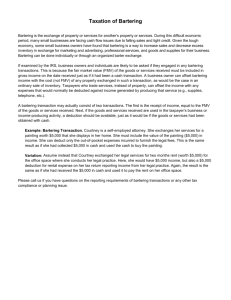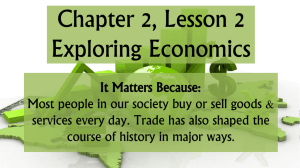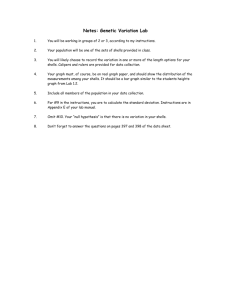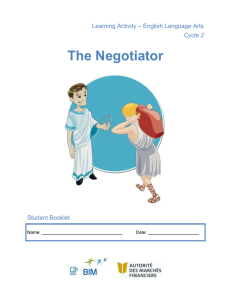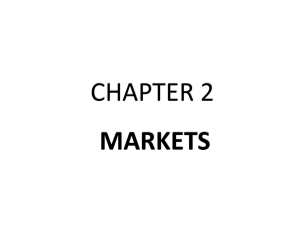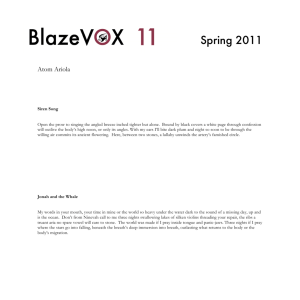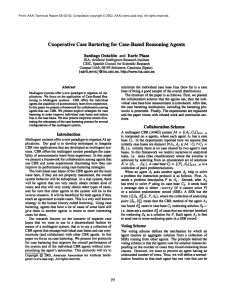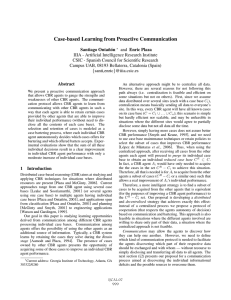Reading: The Function of Money
advertisement
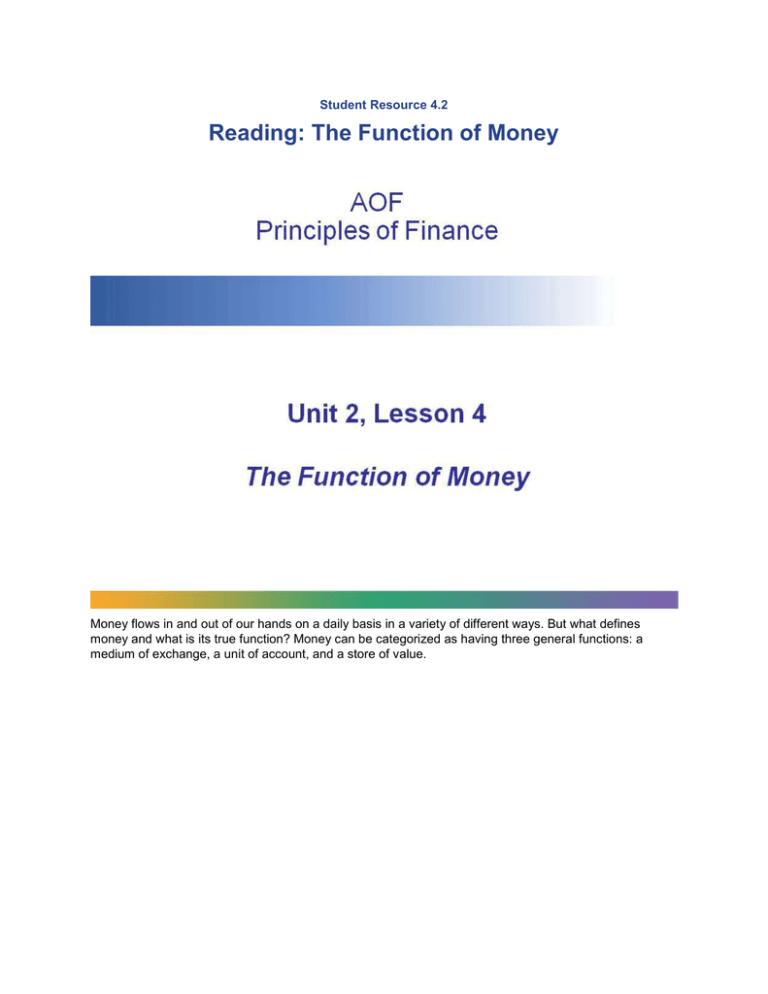
Student Resource 4.2 Reading: The Function of Money Money flows in and out of our hands on a daily basis in a variety of different ways. But what defines money and what is its true function? Money can be categorized as having three general functions: a medium of exchange, a unit of account, and a store of value. Money can be characterized in the following ways: • Durable: Money should be able to last a long time and should be able to withstand many exchanges and transactions from person to person and business to business. • Portable: Money should be easy to carry around. Consumers must be able to transport their money around from shop to shop with ease. • Scarce: Money needs to be scarce enough to be valuable. Money needs to retain its value. • Divisible: Money needs to be able to be divided into small units. Meaning that consumers must be able to get their change after making a purchase. Bartering is a type of trade in which goods or services are exchanged for other goods and/or services. Bartering dates back to over 100,000 years ago. Stones, shells, livestock, and tea leaves have all been used as money during one time or another. Before money was created people found ways to obtain the goods and services that they needed through bartering. After a while bartering proved to be inefficient, inconvenient, and unsuccessful, and the evolution of money began. From shells to stones, from livestock to tea leaves, money gradually evolved into what it is today. The most important job of money is to serve as a medium of exchange. Money makes trading easier by replacing the barter system with a system that involves currency, coins, or checks. Money makes it faster and easier to buy and sell things. As a medium of exchange, everyone must have faith that everyone else will accept it for their goods and services. Money also encourages specialization and efficiency. People who are really good at making a product can just sell their product for cash in order to get what they need, rather than try to make other products that they are not very efficient at making. In this way, individuals can specialize in one area and increase productivity with that item. Money is a store of value. As a store of value, money can be held until an individual chooses to exchange it for a good or service. Money makes it easier for people to save and then make purchases in the future. Money serves as a way to measure and compare the value of specific goods and services. When comparing prices, individuals can compare values of goods and services and determine if one good is a better buy than another. In other words, money provides a common unit for measuring the value of every good and service. Without money, the worth of an item would have to be valued in terms of other goods and services. With the evolution of money came an ease of purchasing goods and services. In some respects, life became more convenient and efficient. Unlike livestock, shells, fur, and stones, money was easy to transport, lasted a long time, was widely accepted, and was easily converted into smaller units. However, money can also be complex and confusing by nature. It is very important to manage your money effectively, to make responsible spending choices, and to be deliberate about your financial goals for the future.

